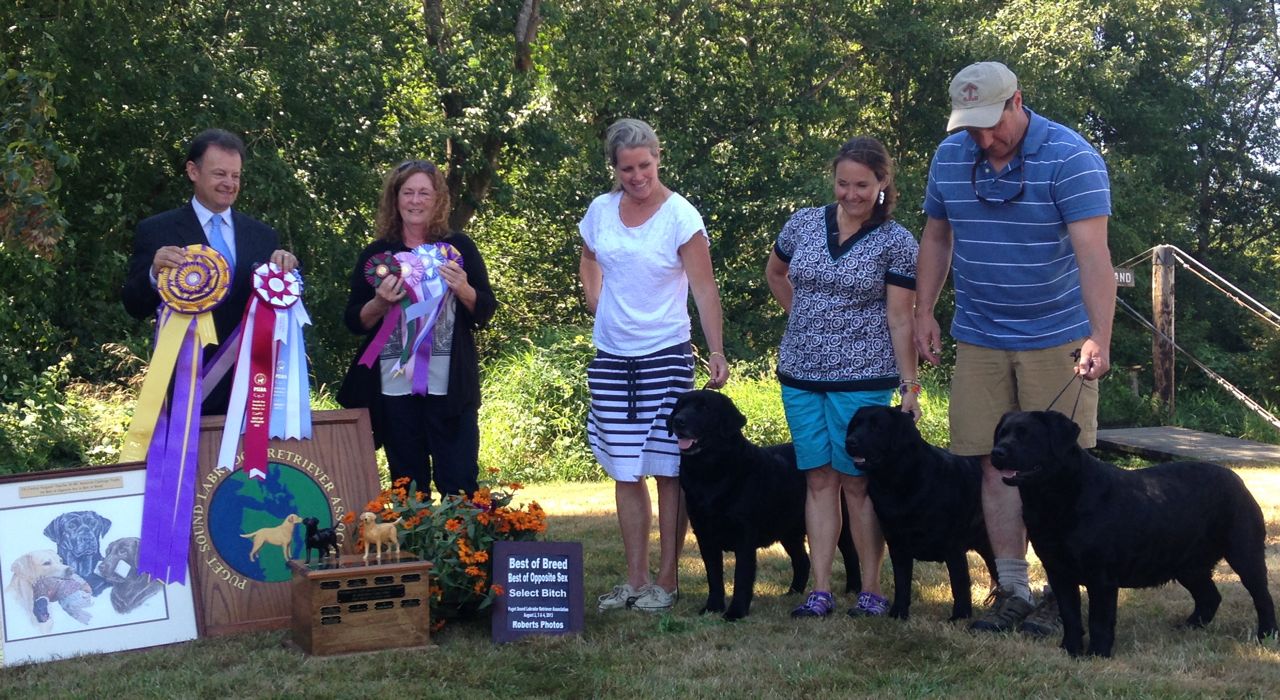How do I make my Labrador more competitive in the showring?
At the dog show this weekend I was once again struck by the number of really nice dogs out there who continually struggle to win. In speaking with their owners, they voiced their frustration. "Everyone tells us what a nice dog he is, why can't he win?" I was at a loss to explain.
So I started thinking about it, and began to think of what separates those who win consistently, or even often, from those who struggle. I came up with a number of things that anyone can do, given enough determination and/or motivation. Those things involve grooming, conditioning, training, and presentation. Let me also note that we all can be fully aware of all the things we SHOULD do, but the reality is most of the time they don't get done. Whether we are tired or busy at the show, stressed or whatever, I often watch people who know better choose not to go that extra step. The consistent winners typically always do everything they possibly can to make their dog look its best.
First, let me state the obvious: Nothing takes the place of great bloodlines. A well-bred dog with top notch conformation, beautiful breed type and a rock-solid temperament often walks in the ring and presents himself so well there is no way to deny him. Few outside the very top breeders are lucky enough to own that dog. And those who do have come by it after a ton of study. They have worked hard and finally bred a really good one. Kudos to them. For those with good dogs who aren't as competitive as they would like on a regular basis, here are a few things that I think can help you to become more competitive.
Conditioning: I cannot state how important this is. We all know there are breeders who either because of time or physical issues cannot do much more with their dogs than leave them in a pen. We also all know it is very difficult to win with a dog like this, and they can be spotted a mile away. Usually they are the goofy, wild dog who smells bad and has never been on a leash. We all joke about it, but it isn't really funny. You aren't going to win with a dog like that. I remember the late Janice Pritchard giving a 45 minute talk to us after judging PSLRA, and it was all about animal husbandry. About having a dog with whom you had a "connection." Said she could see it in their eyes.
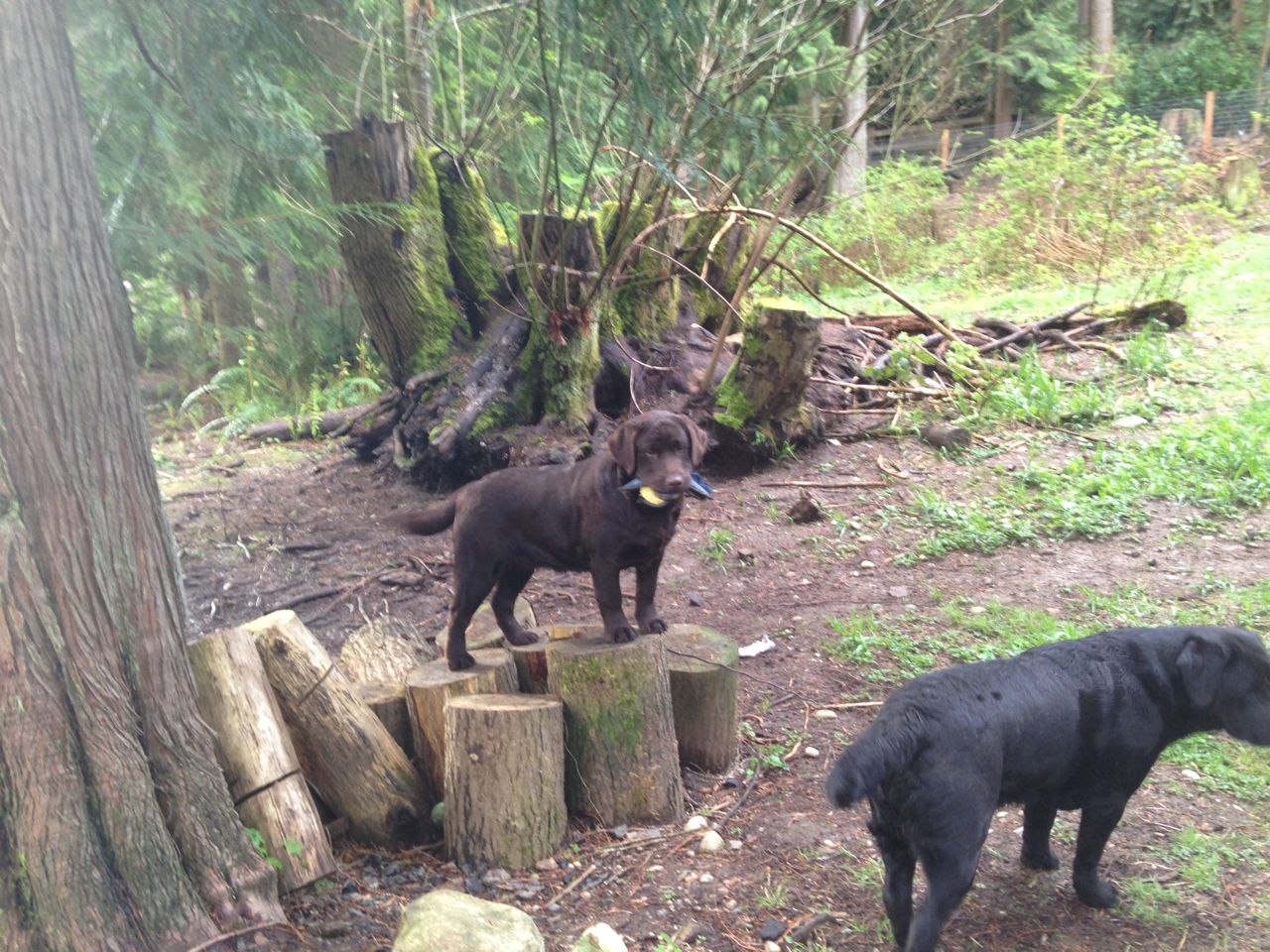
I know that all day every day I am concerned with my dogs' physical AND mental well being. I hate to have them locked up. We laugh that ours is the ugliest but greatest dog yard ever--an acre and a half of fenced, hilly woods. The dogs run up and down, chase birds and squirrels, chew sticks, splash in creeks and puddles, climb stumps and basically run themselves ragged playing with each other. And yes, they ALL run together, boys, girls, puppies and even the older dogs. If I have to leave, I put boys in runs, older girls in a big pen and leave puppies out. Still, that isn't enough to entertain them all day. I also throw the ball for them most afternoons. I think the short bursts of speed are important for building the fast twitch muscles that are bulkier, like a Quarter Horse. Again, I know some will think I am crazy to let the whole pack run together, especially to chase a ball in unison, but I think it makes them strong. It keeps them physically fit and mentally happy. But the bottom line is they just want me to spend time with them. To be there, giving them a little attention, admiring each stick they bring to show me. If I give them no or little attention on a particular day I can see their stress level rise. It's just how dogs are, they are social and crave attention, and I believe need lots of it to be healthy mentally.
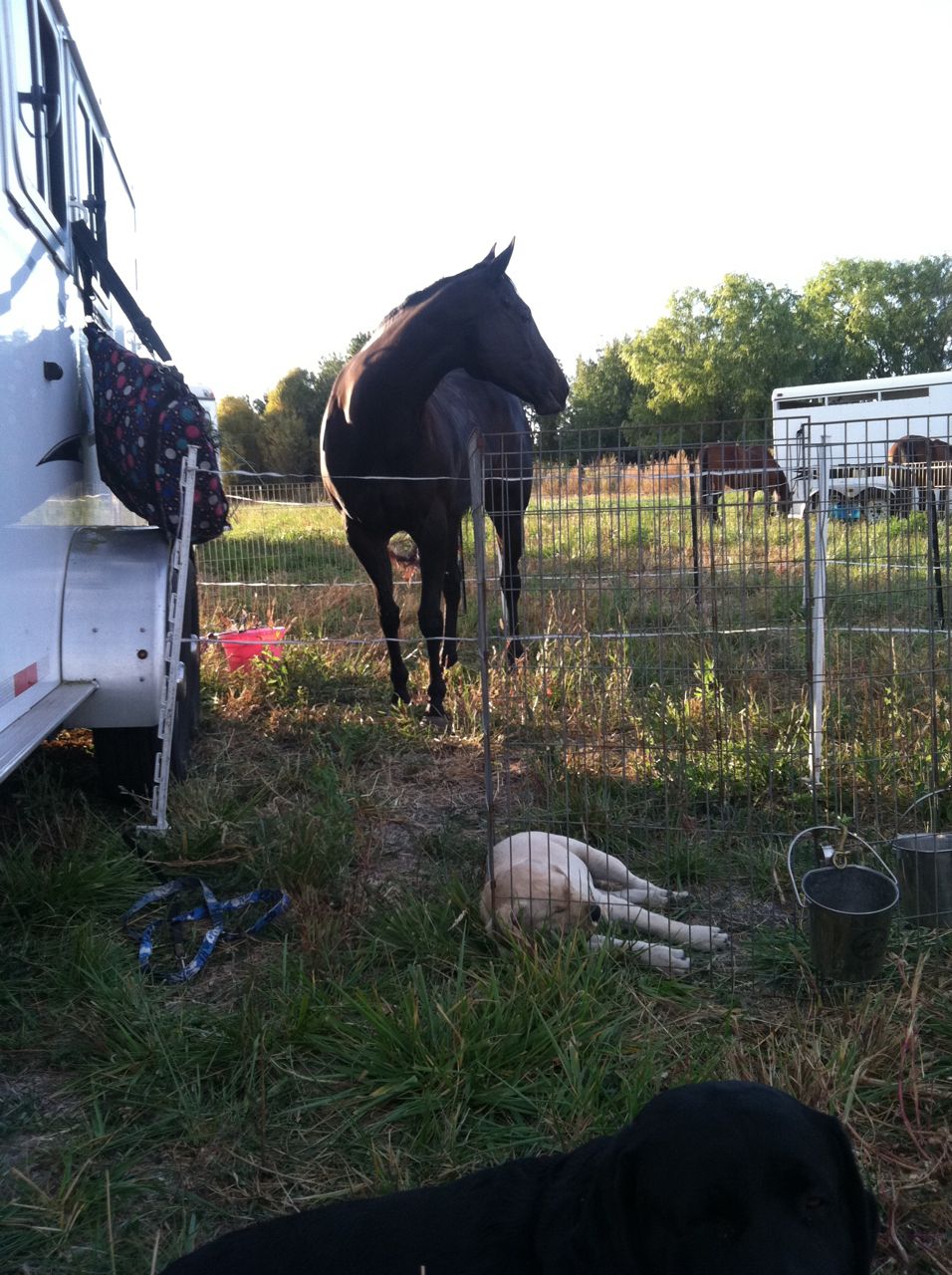
They also need to get away. Going out on walks, running errands, and best yet overnight trips make a dog relaxed in lots of situations. I love to tie my dogs to the horse trailer at barrel races. YIKES you all are saying in unison. Try having a tantrum while tied up, it doesn't get you very far. Horse trainers know this well, and tie their youngsters up regularly. My horse show companions tend to be very patient dogs, and well socialized. Being calm and confident is one of the most important features of a Labrador show dog. And it is very difficult to have a calm, confident dog if he isn't well-travelled. It is possible, some are born that way and I work hard to create that in my breeding program. But most need some help developing that confidence. Training and socialization are key.
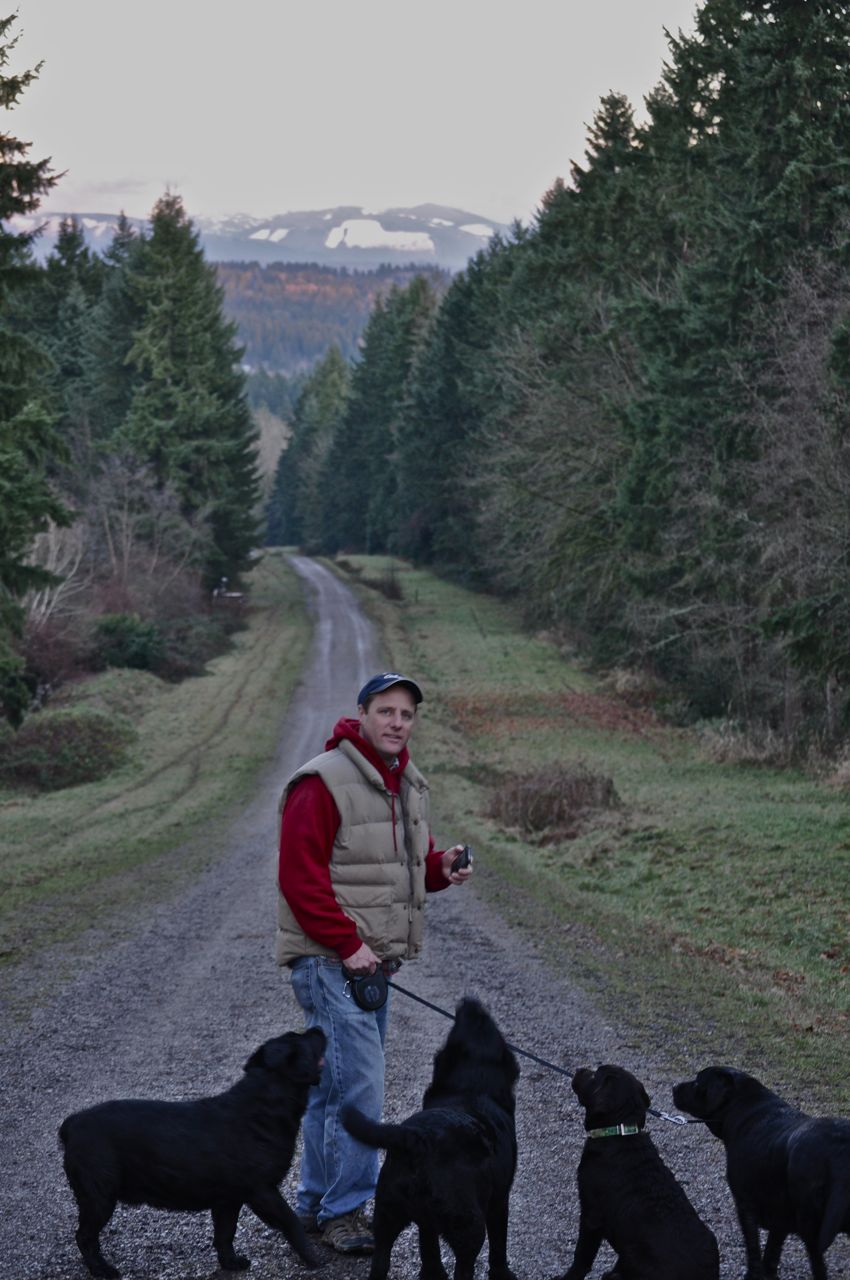
While there will constantly be a debate on the proper weight of a Labrador, I do know it makes it harder to win if your dog is either too fat or too thin. And it makes it hard to know how much weight they are carrying without checking. Put your hands on your dogs. Every day during show season, if you are unsure. Look at them and decide if they need more or less to eat that day. If you wait two or three weeks and your dog gets fat or thin, it is much harder to correct. Pretty basic, I know, but again it is surprising how many people neglect this important aspect of conditioning their show dog.
Grooming: What, groom a Labrador? Yes, I think our dogs all look better groomed. I for one would never walk in the ring with an ungroomed dog. To me grooming is at some points during the year an every day thing. The second mine start to shed, if I have any desire to attend a dog show within the next couple months, I use an undercoat rake daily. What I have found is not only does it make the dog look much better as it is shedding, it makes the new coat grow in faster. So if I really work on it, I can have a shedding dog only out of the show ring for about six weeks, and looking good again in two months. It is worth the extra effort. Some breeders won't show their dogs unless they are in perfect coat. That is, of course, the smart thing to do. You don't want people seeing your dog unless he is looking his best. However, I know for many of us in the Northwest, we don't have countless specialties to attend. And we like going to certain shows just because they are fun. So really that is even more reason to work on your dog daily. Then if they ever are somewhat out of coat you can enter up and they won't look horrible.
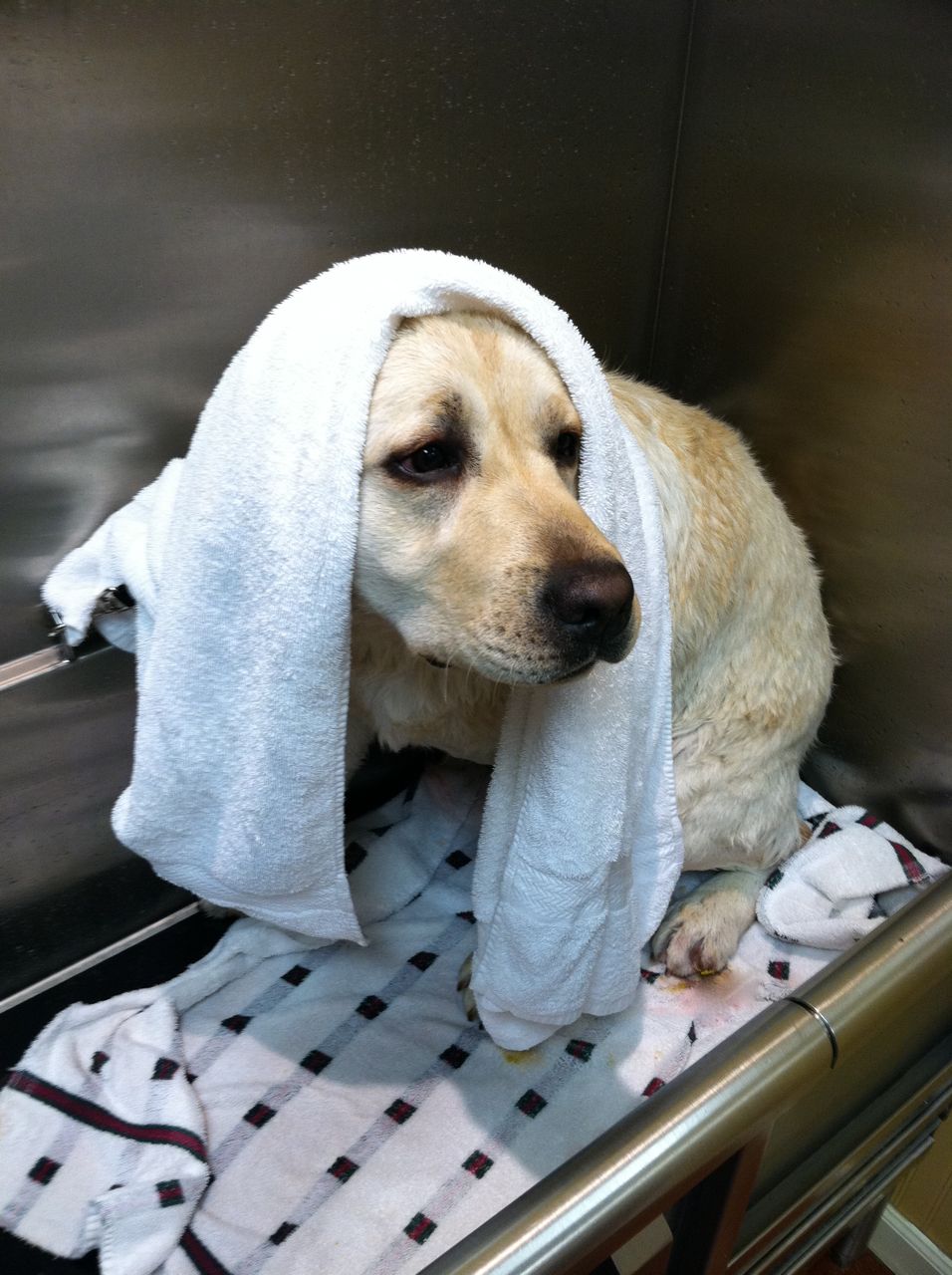
My barrel horse has a great breeder and great trainers. She received the very best of care before I bought her, spent lots of time being tied and groomed and worked on, and I like to dote on her, too. She loves being handled and pampered, and will stand quietly for hours even for the vet because it is comfortable for her. Make being touched and poked and prodded comfortable for your show dog. Regular grooming is the best way to accomplish this.
Nails need trimming regularly or they get too long to look good with one trim before the show. If you have to take too much off at once, you'll make him lame. Or should I say nails on yellow dogs. My blacks and chocolates never seem to need their nails done. Strange, but true. I also bathe my dogs before every show. If you worry about the coat going soft or getting too fluffy, do it a number of days before the show. But my dogs all play outside, climb hills and stumps and swim and splash in puddles, so they are all a completely different color after a bath. I won't skip it, and will go to the heated dog wash in the winter if I need to. But I am not going to show a dirty dog.
At the show, I spritz each dog lightly with a little water that might have some listerine or bodifier in it. I then brush any spots that need it and dab a little vaseline or oil on their nose. Most need a quick wipe down with a towel as well. It's nothing like the grooming we used to do to halter horses, but every dog looks better with a little TLC. There isn't a dog I show that I don't do something to before I walk in the ring.
Training: This is a tough one, because most people are not good dog trainers. Sorry, but it is true. Years and years of going to classes is invaluable for any exhibitor/breeder for one simple reason: You must understand the proper timing of reinforcements, both positive and negative. People struggle with dogs giving ears, standing still, not sniffing, etc. etc. yet constantly reward the wrong behavior. The only way to learn this is to go to class on a regular basis and have a good trainer teach you. I showed competitively in obedience for many many years, put Utility titles on dogs and won multiple High in Trials. That training is one of the most important things I've learned in my years in dogs. A well trained dog is typically a confident dog.
Now, do I do much formal training with my dogs now? Heck no. I do hardly anything, but am good with my timing and can teach most of them pretty quickly, as long as they are sound of mind and body and have been hauled a bit. Tee hee, horse expression, but it applies. However, recently Scott has invited friends over to do "puppy class" whenever we have a four or five month old puppy and a show coming up. It is great! They learn a ton, we learn a ton, and anyone can do it. So get together with friends and train. Or go to handling class, a good instructor is invaluable.
Here is a simple training tip: Don't let your dog bark. Most know this is a pet peeve of mine, but I believe it has a negative impact not just on all the other dogs and people at the show, but also on the dog doing the barking. Confident dogs need to learn self control. A dog who is barking is not displaying self control. Not only that, but often a barking dog will escalate and end up working himself into a worried tizzy. If he knows he is not supposed to bark, he instead focuses on maintaining self control and that in turn makes him more confident. And if your dog is barking aggressively at other dogs? Sell him. Just my personal opinion, but I feel pretty strongly about it. Most dogs who are barkers are either anxious or aggressive. Neither are proper traits for a Labrador. Of course dogs bark sometimes just because they want to, especially if there are a bunch of them together, but that is different. Train your dog not to bark and you will see.
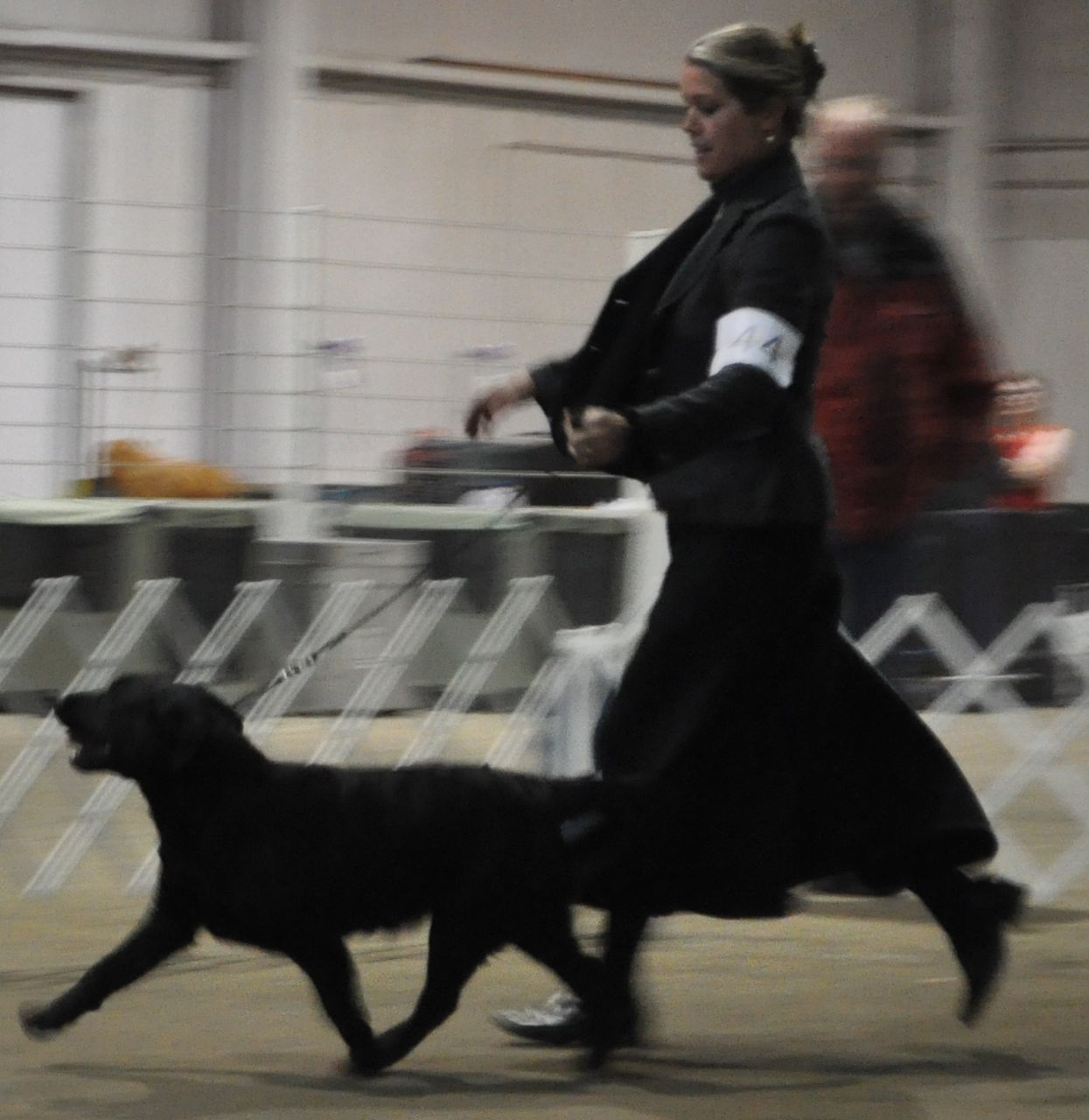
Presentation: Ever wonder how those really beautiful handlers do it? I mean, some people can pick up a lead and make any dog look good. It is a talent, that is for sure, but I guarantee you those really talented handlers work very hard at it. And you know what else they do? They groom, they train, and they condition, then the presentation seems to take care of itself. I'll never forget meeting with a handler once years ago while they groomed my dog, and another handler joined us, and they spent the whole time talking about what terrible handlers Labrador people were. How we basically just stood around and talked and threw food at our dogs. And they would come in and beat the pants off us, and it was like taking candy from a baby. And to some degree they were right. When I judge I am often amazed at how many exhibitors don't even pay attention to what the judge tells them, let alone what their dog is doing. It is very hard to beat a good handler when we do almost nothing to help our dogs. I have been called "intensely focused" at shows. I think about that often, and while it isn't always true, I know it is important to pay very close attention to both the judge and your dog. If you don't, you risk your dog being poorly presented without you even being aware. Pay attention.
If you want to learn how to handle well, go to a class with a really good handler. Or go to Mexico! Man, those guys know how to show their dogs. But the best thing is to just plant yourself ringside and watch someone who is really good at it. I almost named names here, but I won't. Message me if you are unsure of who the great handlers are. Now, that said, you have to understand how good these people are at their timing of reinforcements in order to truly appreciate what they do. If you don't understand that concept yet, go back to class and study. A dog is not going to stand up on his toes, totally focused, tail wagging and looking gorgeous for more than a few seconds. Many people are showing their dogs CONSTANTLY, even outside the ring. STOP. Save it for when it counts. Spend the rest of the time in the ring playing with them and making them love it, and/or totally ignoring them. What I do is if I am in a big class and want my dog to relax, I turn away from them a bit. When I am in that position, with my shoulders turned away, I can chat with friends and the dog knows to relax. Then if you have trained them, and are watching the judge, when it is your turn to be looked at you can turn and face the dog and they will give you their all--for a moment. Reward that and go back to having fun.
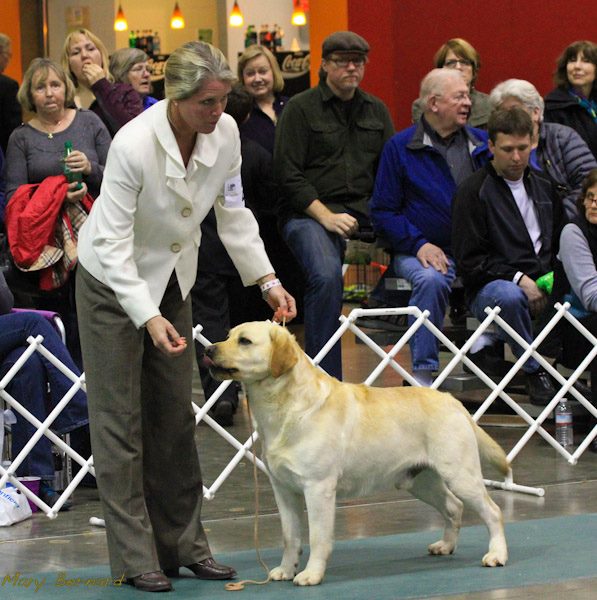
Also, remember it is a dog show. Many will disagree with me and point out all those who win without this detail, but I for one am going to dress well, put on my makeup and my bling and hope that when I walk in the ring I am looking good, not like I just rolled out of bed. It isn't as true at specialties (I'll wear jeans there), but at an all breed show my philosophy is this: Don't dress in such a way that it gives the judge and excuse NOT to give you Best of Breed. He realizes if he does you will be going into the Group with all the professional handlers in their suits. If you are wearing sweatpants he knows you won't be a good representative for the breed and will probably move on to his second choice. To me that is a silly reason to lose.
You also must know your dog. Show horse people would never consider yanking a horse out of its stall and going directly in the ring, but dog show people to it all the time. I have a number of dogs who are very happy and social. Those dogs need to stand ringside for a good ten minutes and get over their desire to visit before they will focus on me. I have a few who are big athletes, they need to go for a walk and warm up their muscles before they can show off their pretty sidegait. Still others need a little discipline before they will behave. Others are so quiet or dull they only have a moment or two of showiness, they need to be totally ignored before it is their time to show. Asking for them to show for you outside the ring just wastes the little attitude they have. Know your dog and learn what pre-show ritual works for them.
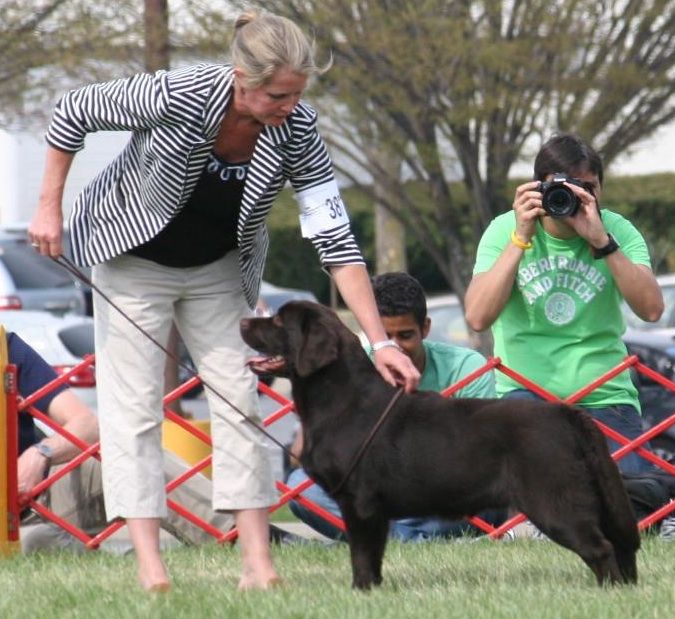
So what does all of this mean? In today's super competitive Labrador ring, it takes more to win than just having a nice dog. But if you have a nice dog, and he is in great shape physically and relaxed and happy mentally, and you have him groomed and trained and can present him beautifully, there is no reason you can't compete with the best of them. Good luck to you.
Becky Gorton and the Nipntuck Labradors
Woodinville, WA
